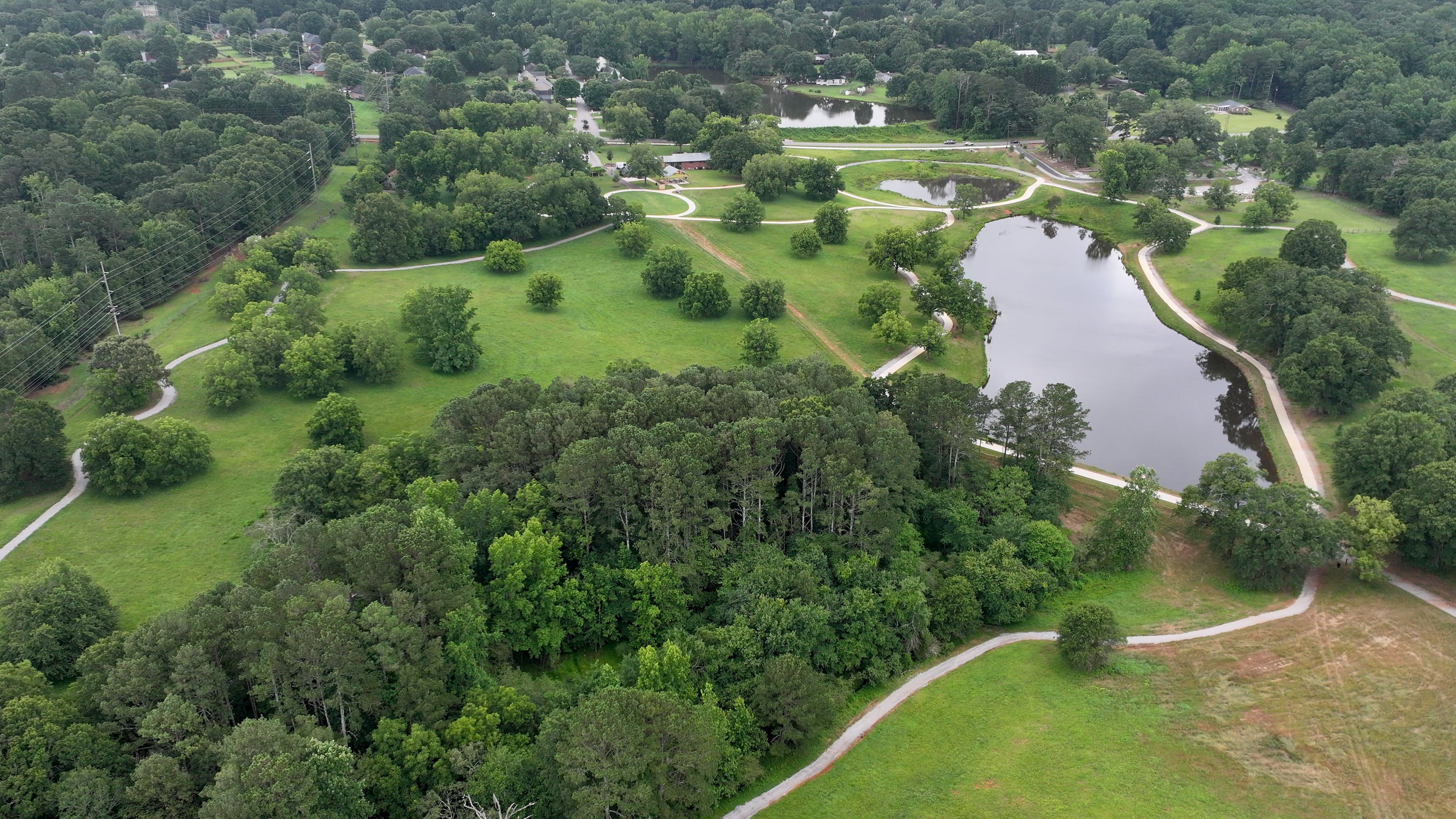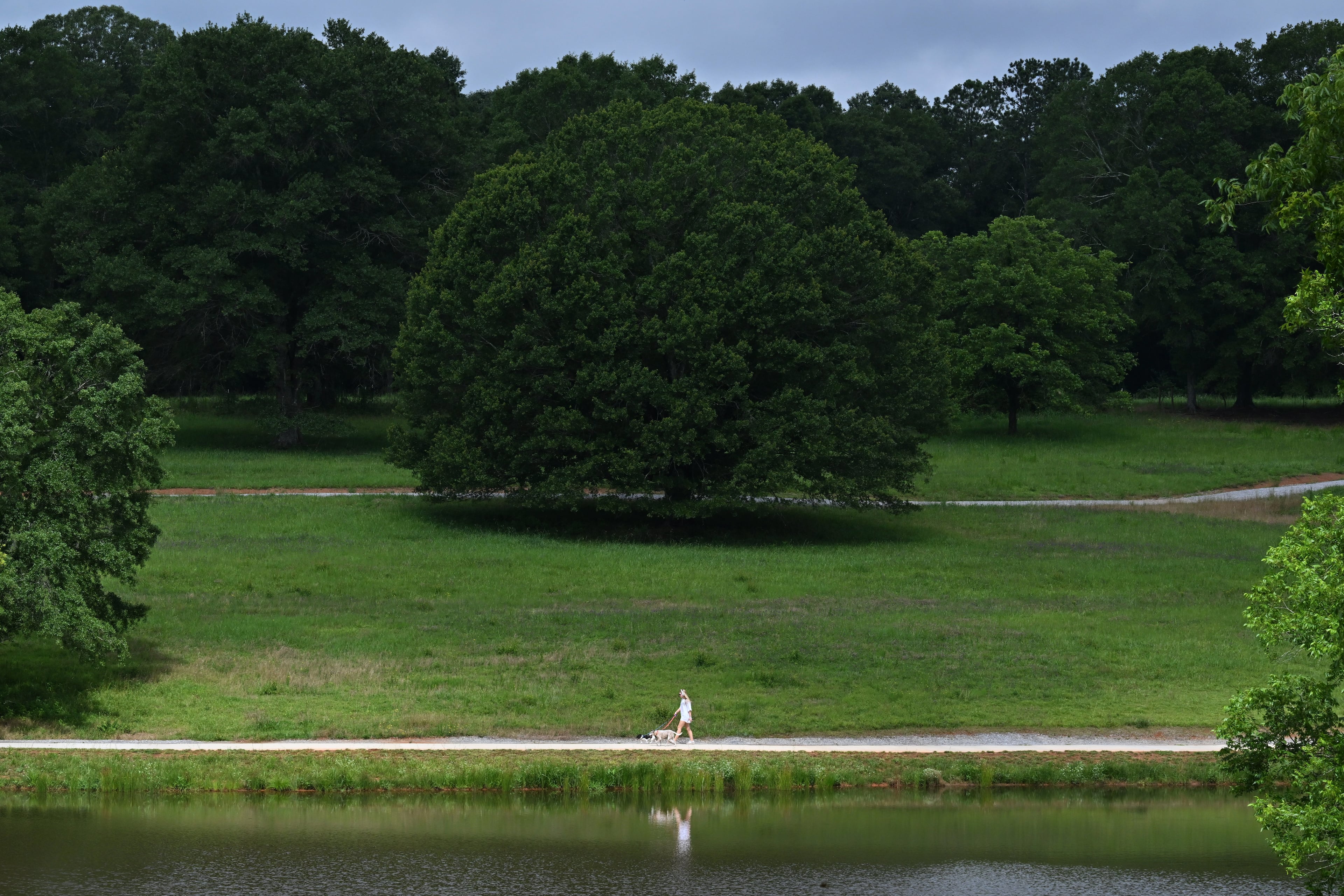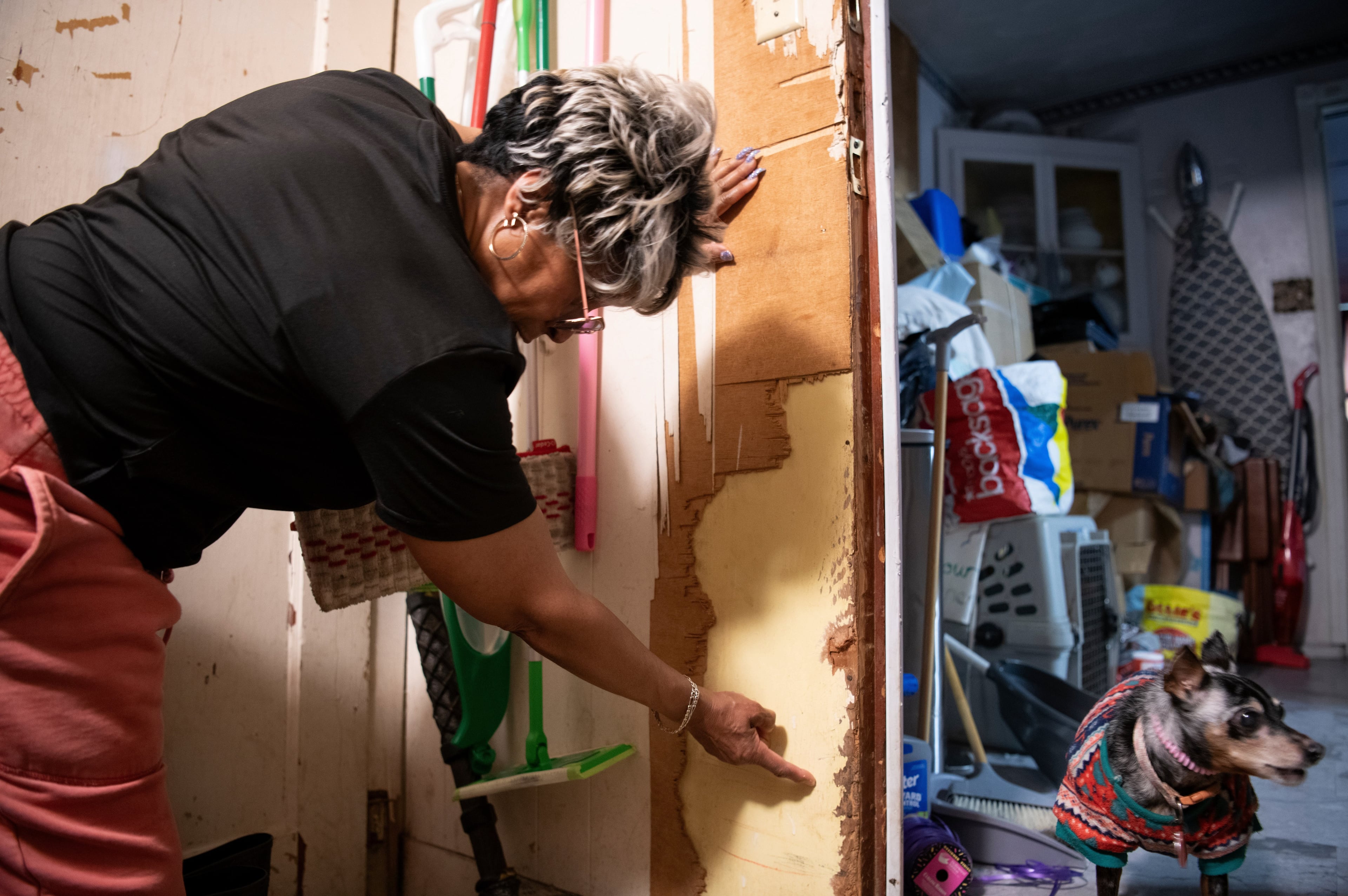Green space over greenbacks: Family protects land by selling to Watkinsville

Editor’s note: “Dispatches” are occasional snapshots of people, places, scenes or moments from around Georgia that our reporters come across. They aim to be immersive and aren’t always tied to a news event.
WATKINSVILLE — On a humid, sunny June morning, Mark Thomas strolls across the 98 acres where he grew up in the 1960s.
He points out where the old farmhouse once stood before it burned down, where peaches were grown and turkeys raised, where his grandfather stocked a pond with catfish, bass and bream. In a nearby field, his father once hit rifle shots dead-on aiming through nothing but primitive iron sights.
His quiet walk down memory lane pauses when a couple strolls by with their dog.
“We certainly do enjoy this property out here,” Ernie Perry calls out. “At least this won’t be houses.”
Thomas said a developer offered $4.5 million for just 16 acres two years ago, with plans to build 256 apartments and leave room for future expansion. Instead, the family sold the entire 98 acres to the city of Watkinsville for the same amount. But with one condition: It could never be resold.
“In the end, none of us are going to take the money with us,” said Thomas, a county commissioner. “What better use than a park that can be used forever?”

Watkinsville Mayor Brian Brodrick saw it as a once-in-a-generation chance. “A transformative opportunity,” he called it.
Just south of Athens and the University of Georgia, Oconee County’s population has nearly doubled to about 45,000 since 2000.
Downtown Watkinsville, the county seat, now boasts 13 restaurants and a thriving area called Wire Park — a renovated factory filled with shops, eateries, batting cages, a brewery and a public library.
Developers are eager to build more, as people increasingly are drawn to the county and its top-tier schools. Reflecting continued demand, the average home value in Oconee County has risen 51% in the past five years — to $555,000, according to Zillow.
City officials are trying to balance that with what brought many here in the first place: space, much of it green.
Brodrick, who became mayor in 2021 after serving on the City Council, has worked to build connections between neighbors and the past.
“That creates the character and value of the community,” he said.

The Thomas farm fit that vision.
To fund the purchase, the city used leftover money from the federal American Rescue Plan, then secured a 20-year loan at 1.92% interest from the Georgia Environmental Finance Authority. To help close the gap, Watkinsville temporarily raised its millage rate for one year.
“We probably paid a little more than we wanted to and Mark (Thomas) and (brother) Mitch (Thomas) probably took a little less than they wanted to, but you look at it a year later and none of us have any regrets about it,” Brodrick said.
Six months after the Thomas Farm Preserve opened to the public, Brodrick has a favorite view near the entrance. There’s a “perfectly shaped” water oak tree just past a pond where the sun often sets. From there he often sees people fishing and walking and kids riding bikes.
There are more than 2 miles of gravel trails for runners and another 2 miles of dirt paths tracing through woods and along Calls Creek for bikers and hikers. The city also has installed a mile of paved, wheelchair-accessible concrete paths.
A large pier on one of the ponds is in the works. So is a 110-foot covered bridge that will connect the land to downtown Watkinsville.
“We’ve got people experiencing nature in a way they might never have had the opportunity,” Brodick said.
Last year, Watkinsville, population roughly 3,200, won an “All-America City” award from the National Civic League for its efforts around playgrounds and public spaces.

As he walks the family property turned city park, Mark Thomas toggles between past and future.
The Thomas family arrived in Oconee County in the 1800s. His great-great-grandfather grew cotton and ran a gin south of town. His father and mother, Howard “Hot” and Mary Thomas, were just starting their family when the 98-acre tract went up for sale for $18,500 in the spring of 1961.
Hot had a knack for filling needs.
When the newly remodeled house burned down in 1961, he started a fire department and became the first chief. For those who paid membership dues, Hot and Company would put out fires and help those in danger. Even for those who didn’t pay, they still showed up to save lives.
Weekend barbecues were a big deal back then, and the Thomases made theirs stand out. They raised their own hogs and eventually opened Hot Thomas’ BBQ — a local institution — near the old cotton gin.
In the woods near a waterfall and creek, where a mother lets her kids splash in the water, Mark Thomas points to a beech tree beside a bike trail. The bark is scarred with a simple carving: “Mark 61,” etched by his father shortly after he bought the land.
“That’s more evidence — this is going to stay here,” says Thomas, now 65. “If we had development, this would be gone forever.”




